An Interview with the American Society of Criminology’s 2018 Student Paper Award Winners

The American Society of Criminology (ASC)’s annual Gene Carte Student Paper Competition acknowledges full-time students’ exceptional contributions to the field of criminology, awarding winners with prize money and an opportunity to present their work at the society’s annual conference. Applications for the 2019 contest are now open.
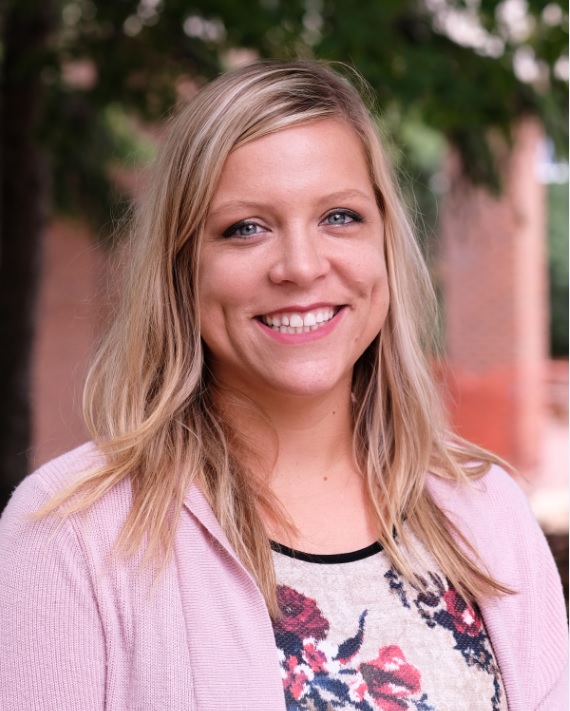
Having earned her master’s degree from the University of Nebraska at Omaha, Kristina Thompson Garrity is now a doctoral student in the Department of Criminology and Criminal Justice at the University of Missouri – St. Louis. Her research interests include structural and population dynamics, quantitative methods and spatial analyses, and urban-rural interdependency.
Her paper “Rural Islands or Not? Exploring Rural-Urban Interdependency, Labor Markets, and Violence” was awarded first-place in the 2018 Gene Carte Student Paper competition.
Jacquelyn: What led you to focus on rural as opposed to urban violence?
Kristina: I’m not sure it was ever really a conscious decision. I had been resistant to just say “hey, what about rural places?” because I knew the idea was not exactly novel. Good criminologists and sociologists have been studying and critiquing rural research for some time – so while it was somewhat outside of the purview of mainstream criminology, I did not feel like these issues were completely ignored. But I will say that growing up in a rural area probably primed me to consider communities in a broader way than we traditionally do in empirical work. That background, combined with reading theories and empirical evidence that emphasized the importance of structure to social control, probably led to my interest in how such processes looked beyond urban areas.
Jacquelyn: Why is research like your own on the interdependence of urban and rural communities important?
Kristina: I think studying interdependency is important for a few different reasons. Methodologically, it suggests that we “zoom out” from our traditional samples in order to more adequately capture the relationships in and between communities. I think it also draws attention to opportunities to improve our theories – particularly theories that focus on the significance of place. Finally, from a policy standpoint, the presence of interdependency challenges us to think more critically about how to best organize resources. Streamlining our system to reflect how people move about space (or, relatedly, how they might be place-bound) is wise from both economic and equity standpoints.
Jacquelyn: Are you aware of any emerging topics or trends in the field of criminology?
Kristina: I think recent work dissecting and ultimately dismantling the immigrant-crime myth have been especially striking. Of course, criminologists have been acutely aware of this topic (and its findings) for a while. But I think there is renewed interest given the times we live in.
Jacquelyn: What are your other current or future research projects?
Kristina: My dissertation is aimed at furthering some of these questions of interdependency and crime. I explore property crimes and also explore some of these questions longitudinally. More broadly, I want to continue to decompose the influence of urbanicity on rural crime, thinking specifically about the structural processes of interdependency that may disrupt or improve rural community social control. In addition, I am engaged in more qualitative research with a multi-state project. One of our interests is in exploring rural and urban court systems and their use of monetary fines and fees. I am excited about this because it focuses on the formal social control mechanisms of these places and I am very interested to understand how formal structures fit into my broader understanding of rural areas and crime.
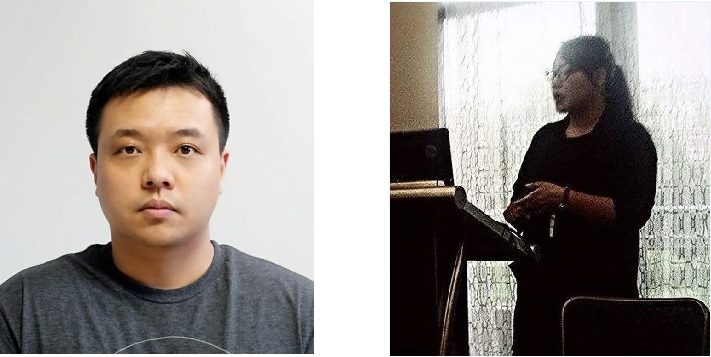
Now an Assistant Professor in the Department of Criminology, Sociology, and Geography at Arkansas State University, Jihoon Kim (left) received his Ph.D. in Criminology, Law & Society from the University of Florida after completing his master’s degree at Hansei University in South Korea. He is interested in life-course/developmental criminology, focusing on advanced methods for analysis.
Yeungjeom Lee (right) also earned her Doctor of Philosophy in Criminology, Law & Society from the University of Florida after finishing a master’s degree in Forensic Psychology in Korea. Her primary research interests include life-course/developmental criminology, victimization, and juvenile delinquency.
Jihoon and Yeungjeom were awarded second-place in the ASC’s 2018 Competition for their article “Revisiting the Overlap between Delinquency and Peer Delinquency through a Life-Course Perspective.”
Jacquelyn: How did you become interested in life-course/developmental criminology?
Jihoon: I was quite lucky to take a developmental/life-course course from Dr. Chris Gibson during my coursework at the University of Florida. I had some general ideas regarding my research interest but wasn’t sure how it could be classified into certain areas. I was fascinated by the developmental approach and the way it explains antisocial behaviors.
Yeungjeom: My first question as a layperson was, “why do some people commit crime while others don’t?” I also wondered what type of person remains criminal after the commission of their first criminal act. Those questions led me to criminology. When I was first introduced to developmental life-course criminology, I felt it could answer these questions.
Jacquelyn: What motivated you to reconsider a significant and established association in the field—that of individual delinquency and peer delinquency?
Jihoon & Yeungjeom: We were mainly motivated by Moffitt’s developmental taxonomy theory to reconsider this popular topic. We previously worked on some papers that repeatedly suggested strong connections between individual delinquency and peer delinquency. What fascinated us about Moffitt’s theory was that such links could be differentiated within developmental stages of individuals. As the counterpart of the argument, we incorporated Thornberry and Krohn’s interactional theory, which suggests reciprocal interactions between individual delinquency and peer delinquency –Yes, Dr. Marvin Krohn is our advisor, lol.
Jacquelyn: Why do you recommend that juvenile delinquency policies focus more generally on the overall juvenile population, as opposed to just “high risk” juveniles?
Jihoon & Yeungjeom: The major finding from our research was that juveniles are susceptible to peer influences, even if they were not previously considered delinquent. When considering the long-term changes of delinquency trajectories, some juveniles are late bloomers for involvement in antisocial behaviors. On the other hand, some juveniles who had early involvement in delinquency may begin to desist from antisocial behaviors, which can lower the average of delinquency overall. Therefore, we concluded that if our system is only focusing on “high risk” juveniles who identified in particular developmental stages, it may be unable to provide proper intervention to all at-risk juveniles.
Jacquelyn: Which topics in criminology do you hope to see more research on in coming years, and why?
Jihoon: I would love to see more research on juvenile delinquency and peer influences on online environments. Since the field of criminology has primarily focused on juveniles, cyber criminology is a relatively new research area in the field and is a valuable study in bringing our understanding of juvenile antisocial behaviors into the Internet area. When it comes to my future research projects, I hope to bridge gaps between our previous criminological knowledge and antisocial behaviors in an online environment and expect to see more studies from scholars who are interested in that topic!
Yeungjeom: I hope to see more studies applying developmental/life-course perspective to victimization. Compared to the well-established body of work on criminal careers, research on victim careers is still limited. Expanding this idea to the cyber world would be great, too.
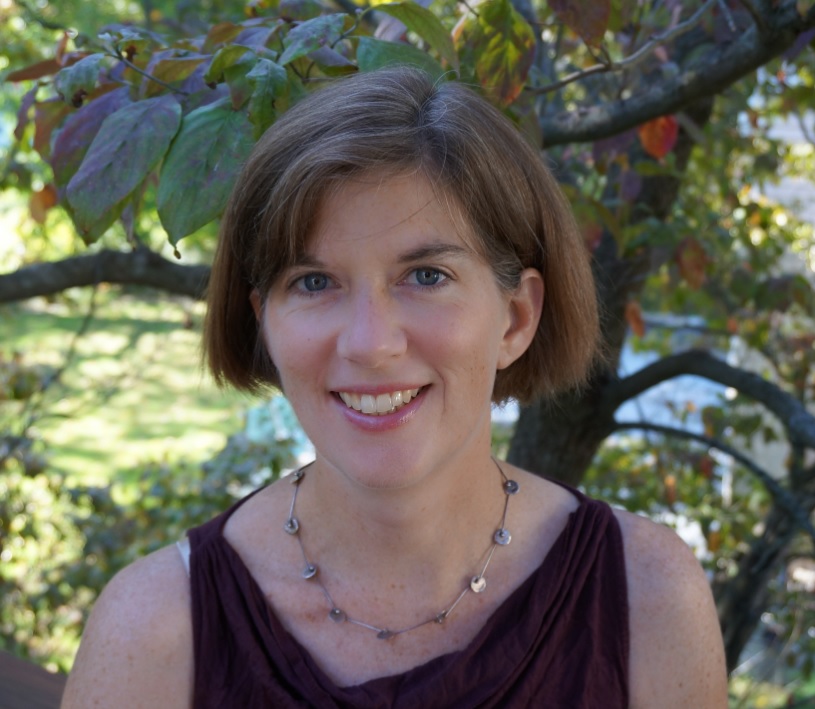
Eileen Kirk is a doctoral student in the School of Criminology & Criminal Justice at Northeastern University. She received her master’s degree in Public Administration from Suffolk University and her research interests include crime and communities, social inequality, and criminal justice policy.
Eileen’s paper, “Punitive Disadvantage: Prison Cycling as a Dimension of Concentrated Disadvantage” won third place in the ASC’s student paper contest.
Jacquelyn: What prompted you to examine the prison cycle as an element of community disadvantage, as opposed to an outcome of it?
Eileen: In general, I am drawn to exploring how policy influences neighborhood crime and community function, so when I started this project, I was initially investigating how mass incarceration, as measured in prison cycling, contributes to neighborhood crime and social processes. However, once beginning the analysis, I started to consider prison cycling as an element of disadvantage. Over the last several decades, public policies have created a criminal justice system of mass incarceration, but policy consequences are not limited to individuals involved in the justice system. Ex-offenders are returning disproportionately to disadvantaged communities, so it seemed to make sense that prison cycling should be considered as a contemporary dimension of community disadvantage.
Jacquelyn: Have you always been interested in research that could help reform criminal justice policies and reduce mass incarceration?
Eileen: Studying criminal justice policies and mass incarceration is relatively new to me, but I have always been interested in work associated with social inequality. Before I started my doctoral studies, I worked at non-profit and governmental organizations, and at my last job I had the opportunity to work closely on a job-training program for individuals with barriers to employment. Many of the program participants were ex-offenders, and realizing their challenges inspired me to learn more about the long-term impact of incarceration and the role of public policy. Given my background in community work and prior studies in planning and policy, I eventually gravitated toward researching the intersection of public policy, social inequality, communities, and crime.
Jacquelyn: What other topics in criminology are of interest to you, and why?
Eileen: My paper on mass incarceration and disadvantage has led me to look at other areas of policy that may contribute to community crime. I am currently working on my dissertation, and for that I am exploring how community investment through housing policies may affect neighborhood crime and social functions. There has been recent literature examining how housing events contribute to crime, such as work by María Vélez on mortgage lending, and I am investigating whether there are specific public policies associated with those events that influence neighborhood crime. While I am looking at housing now, in the future, I may investigate how other areas of public policy, including health and education, also influence neighborhood crime.
Jacquelyn: Can you share with us why you’re proud to study criminology?
Eileen: I think criminology provides a unique way to study how society works, and I’m proud of how research in this area can expose social inequalities. Crime gets at people’s most basic needs, safety and security. However, people’s fear of crime can be exploited, contributing to policies that may be inappropriate or harsher than necessary, as in the case of the War on Drugs and the strict sentencing policies adopted in the 1990s. What I find most fascinating is how those punishments play out in communities and impact how society functions. By studying criminology, we can reveal how policies contribute to social inequalities, and hopefully we can identify ways to address crime without increasing inequality or impairing how neighborhoods function.



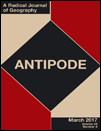
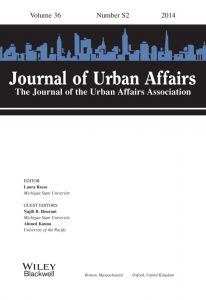
1099-0860/asset/NCB_logo.gif?v=1&s=40edfd0d901b2daf894ae7a3b2371eabd628edef)
